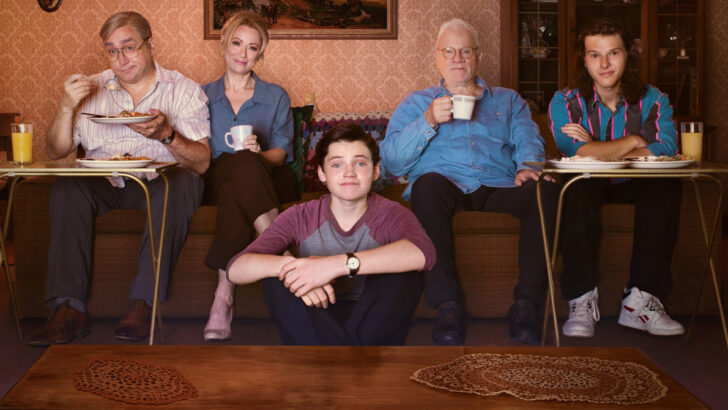Is a crime motivated by hate worse than one motivated by greed, or anger, or lust or indeed any one of the other deadly sins? What if motives are mixed, as they often are? Should the law treat a perpetrator more harshly depending on the motivation? I’m not convinced.
Such questions became very pertinent last week when the new hate crime legislation was accepted by Dáil Éireann. As was suggested by presenter Ciara Kelly on Newstalk Breakfast last Thursday, there was an issue around what some regarded as a ‘poor definition or lack of definition’ of gender in the legislation. Indeed, it’s quite a word salad, that is, according to Ms Kelly, leaving most people ‘utterly confused’. She drew attention to an Irish politician saying in Scotland that there were nine genders, and the SNP (Scottish National Party) making out that were 24 genders! Are you ‘utterly confused’? I didn’t find Minister Helen McEntee’s explanation very clear or convincing – this wasn’t a gender identity bill she said, and her aim was to protect vulnerable minorities. I find politicians rather selective about which vulnerable minorities they seek to protect (#repealthe8th). Does dodgy gender ideology, highly contested in society, have to find its way into the law? Surely that’s where we should find the clarity that politicians so often boast about.
That show also saw coverage of another and even more offensive piece of legislation getting a boost on its way through the Oireachtas. ‘Assisted dying’ is a euphemism for assisted suicide or deliberate killing, and a Dáil committee report on the matter, recommending legislation, was accepted, effectively getting a nod of approval. Reporter Sean Defoe described it as a decision to ‘note’ the report or agree a principle. Thankfully the majority in favour of accepting the Dáil report on the matter was small enough to give hope. Michael Healy-Rae, chairperson of that committee, had dissented from that report, was very much against the idea, but pointed out that any legislation on the matter would be up to the next Government and its priorities. Hopefully those priorities will be more life affirming.
Son of a Critch (RTE One, Friday) is a new Canadian series, a coming of age comedy drama on the lines of The Wonder Years, but without the charm and wit of that series (currently on repeat every evening on TG4). The Critches are a Catholic family in the 1980s and Mark is the narrator, reminiscing on his early teenage days. In last week’s episode he got a notion to become a priest, though more because he liked the idea of giving sermons and spotlight. He was impressed by Fr Moore, an old-style priest, who is mysteriously transferred overseas. The story is set against the background of clerical abuse scandals in Church-run orphanages – when Mark hears about this, his faith, in people at least, is shaken, but he still goes ahead with Confirmation, choosing his irascible grandad (Malcolm McDowell) as sponsor. That was a touching moment, but overall, the tone of the show is very uneven – sometimes respectful, sometimes crude and very irreverent, fitfully funny. There are too many stereotypes – the guitar-picking nun, the trendy new priest, all singing and dancing, whose approach is cringy though well-meaning and whose style of Confession leaves a lot to be desired. It’s a scattershot approach. I’d say it’s a mixture of interesting and uncomfortable for Catholic viewers.
Even worse is Everyone Else Burns (Channel 4, Thursday) recently returned for a second series and as far as religion goes it’s pretty offensive. A comedy, it features an extreme Christian group that practices arranged marriage and cult-like behaviour. The drama focuses on a particular family where the underlying human desires bubble up to conflict with the oppressive rules. It is funny in spots and humane in others, but mostly it is mean-spirited – mockery without any sense that there can be a religion that is genuine, compassionate, clear-thinking, life-enhancing and committed to the service of others. Though it takes on the extremes, I suspect this may be just a sneaky way of attacking religion in general, or at least religion that doesn’t conform compliantly and conveniently to the spirit of the age as defined by media folk. There’s a lot of pressure on programme makers these days to commit to visibility for minorities, pressure to tick the diversity boxes, but people of genuine religious faith rarely get a look-in.
Pick of the week
THE SIMPSONS
Channel 4 Saturday November 2, 10.50am and Friday November 8, 2.25am (night)
Homer the heretic: Homer has a vision from God and decides to start his own religion, with hilarious and thought-provoking results.
THE MEANING OF LIFE
RTE One Sunday November 3, 10.35pm
Joe Duffy speaks with Brookside and Royle Family actor, writer and trade unionist Ricky Tomlinson.
US PRESIDENTIAL ELECTION SPECIAL
RTE One Tuesday November 5, 11.20pm, EWTN Tuesday 2am (night), and most other channels.
Live results coverage of the US presidential election, presented by Miriam O’Callaghan in Washington and David McCullagh in Dublin. Followed by CBS news coverage.


 Brendan O’Regan
Brendan O’Regan Son of a Critch
Son of a Critch 